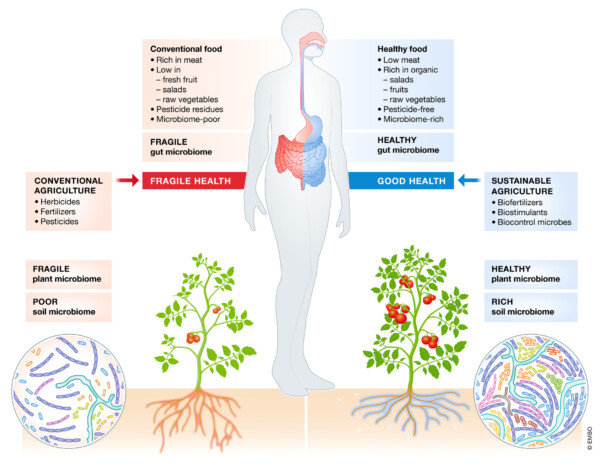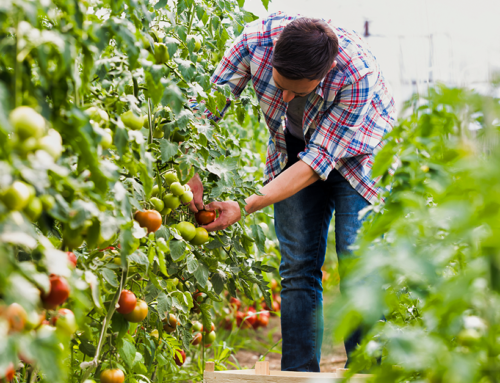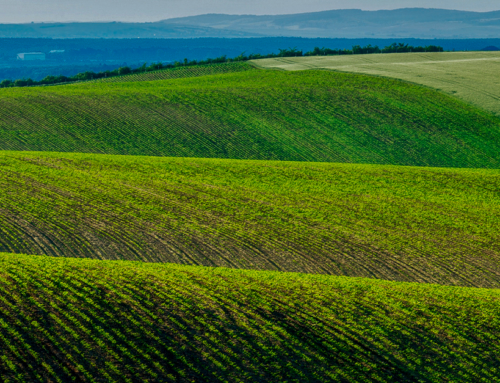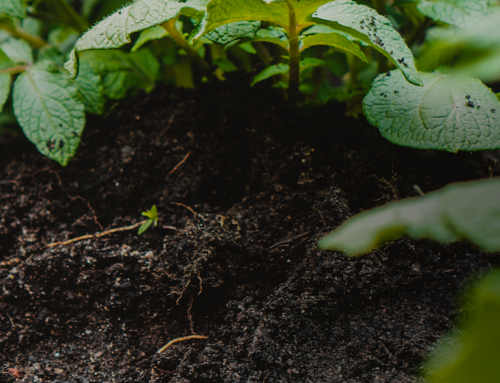A healthy soil is a biodiverse soil, and it is an essential part of our current ecosystem. As we’ve explored in our previous articles, soil biodiversity (or the level of soil organic matter) has been significantly impacted by climate change and unsustainable agricultural practices. This decrease in soil biodiversity leads to fewer healthy microbes and has been shown to affect human health. In other words, soil biodiversity can improve human health.
Eliminating chloride and other harmful chemicals in agricultural practices will preserve the biodiversity in soil and help us create a better environment for plants, animals and humans. Let’s take a look at a few ways human’s benefit from a more healthful soil.
An Enhanced Immune System
When humans consume crops that were grown in biodiverse soil, they consume a large variety of different microbes. These microbes are good for human gut health and often have anti-inflammatory properties. Studies also show that increased exposure to a variety of microbes may increase one’s ability to fight off allergies.
When comparing rural farms that organically maintain their biodiverse soils with more industrialized and manufactured farms, it was found that the rural farming practices led to people developing a higher tolerance to many allergens. The body’s immune system is trained from a young age, so when exposed to a variety of different microbes, it learns how to react and tolerate many different organisms.
Healthier Diets
Another way in which soil biodiversity can improve human health is by increasing the nutrition levels of our food. The different microbes and organisms in the soil help create a variety of different crops that all include a vast amount of nutrients. When there is more biodiversity in the soil there is more variety of vegetation. A human body performs best when we eat a variety of different fruits and vegetables – and a balanced diet starts the moment we choose which crops to grow.
On average, humans are currently eating a significantly less diverse vegetable diet compared to older generations. It is important that the few vegetables that are eaten contain a variety of nutrients that will benefit the body. For some people, the slice of tomato they eat with their burger may be the only vegetable they eat all day.
If those tomatoes are slowly losing their nutritional value, then they are going to be less and less beneficial for our bodies over time. Ultimately, growing different types of produce that are rich in nutrients is only possible if we protect the soil that they grow on.
Soil Microbes Create Medicine for Humans
Human health can also be improved by soil biodiversity when we take into considerations the production of drugs and vaccines. Soil microbes have been used to create antibiotics in the past, and if we start to lose certain strains of microbes, we can lose access to medicines we desperately need. This goes to show that eating fruits and vegetables gives you small amounts of nutrients and serves as a natural medicine over time.
The more the soil is depleted, the less nutrients humans will have to fight disease, making the overall population more susceptible. Furthermore, with the current average human diet there is a lot of inflammation in the body, and anti-inflammation medicine that comes from soil microbes is important in preventing and healing it.
A Reduction in World Hunger
World hunger is often created because of bad soil conditions. Sometimes entire harvests will get destroyed and there will be almost zero crop yield – this occurs when plants spread diseases. When all plants have the same composition and a low variety of microbes in them, there is a chance that none of the existing microbes can stop the disease from spreading like wildfire throughout the crop field.
When there is more soil diversity, it is likely that some plants and crops will contain the necessary microbes to fight the spreading infection. Over time, thanks to evolution, all plants will develop a resistance to common diseases. This, however, cannot occur as easily without microbe rich soils.
In order to end food insecurity and malnutrition, the world population needs to have access to reliable sources of safe, healthy foods. Therefore, biodiverse soils could help us tackle this global issue, by providing more nutritious crops which would improve human health at a large scale. In addition, diseases that stem from lack of nutrition and from eating unclean or diseased foods would also be prevented with more soil biodiversity.
In conclusion, soil biodiversity and human health are extremely related. It provides enhanced immunity, increases nutrition through a diverse diet, helps us create valuable medicine, and contributes to a reduction in world hunger. Soil diversity is not just an environmental issue but also a human health issue – you cannot talk about one without the other.
Below there are some other articles that you might be interested in:






Leave A Comment